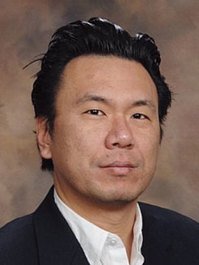The next time you’re Sunday-brunching at your local breakfast joint and perusing the menu for Avocado Toast, you’re not likely to be disappointed. Restaurants want to know the foods that you are craving to keep you happy and coming back. The sooner they can jump on trends, the better edge they’ll have over the place down the street. Trendy foods, dishes, and ingredients are not easy to predict, but Jack Li, the CEO of Datassential has a deep passion behind his work for doing just that.
Main Takeaways
- Big Players Jumping Onto Early Stage Trends: As Li points out, more companies and large corporations are reacting to early-stage food trends in the landscape. Things are so competitive that any advantage a restaurant or chain can have they’ll take it. When competition is fierce, even the small details can become cut-throat. Business is about the bottom line, after all.
- Seeing Opportunity for Art and Science to Align: According to Li, he and two of his “early business partners,” had a clear sense that they could combine their passion for the artful aspect of food with science to increase efficiency. The lesson here is that often art and science are not in different camps altogether. Instead, art and science can be integrated together for each part to sharpen the other.
- Tracking Data to Predict the Flavors of the Future: Having data is one thing, but sifting through it for potential predictive insight is what it’s really all about. Datassential is taking a close look at its data to attempt to determine what food flavors and trends are tracking up and can really break through in the market. There’s gut instinct, of course, but insights drawn from data to forecast food trends can really help businesses make quality decisions. Using data to predict where a market is heading cuts across all industries.
For a more in-depth look at this episode, check out the article below.
Article
Next time you’re Sunday-brunching at your local breakfast joint, peruse the menu for Avocado Toast, and I doubt you’ll be disappointed. Restaurants want to know the foods that you are craving, to keep you happy and coming back. The sooner they can jump on trends, the better edge they’ll have over the place down the street. The pending popularity or trendiness of individual foods, dishes, and ingredients is not easy to predict, but Jack Li, the CEO of Datassential has a deep passion behind his work doing just that.
“If you’re a single unit restaurant, you can really experiment,” Li said “You, as the chef or owner can say, ‘I’m gonna try this new dish on my menu today and just see how it goes.’ But if you have 10,000 stores, you can’t just sort of do that willy-nilly as much. It becomes way too painful if you miss. So the question is, what do people actually want to eat?”
LI explained the way that Datassential thinks about the four stages of menu adoption to predict food trends. He also shared his take on how to use data to help restaurants provide for consumers, and how to best bring science to the world of food.
First off, Li described the overall mission of Datassential.
“At its core, we just try to help the food industry make higher quality decisions around what products to create, and how to get those products into consumer’s hands,” Li said.
Li walked through what he has coined the ‘menu adoption cycle’ in which Datassential is able to predict what foods are going to become popular with consumers with data.
According to Li, there is a four-stage cycle that Li suggests every major trend goes through.
“That first stage is something that we call inception,” Li said “Maybe that trend is now just appearing for the first time in greater numbers on fine dining menus. Maybe it’s starting to show up on the retail side in farmers markets. In some of the products that are sold there, most of those early stage trends will actually die.”
When it comes down to it, Li is passionate about food and about helping others access and enjoy it as much as he does.
“Myself and my early business partners all had this same shared vision,” Li said “We can bring science to this world of art that we all know. And that was it from the beginning. We all saw the inefficiencies with how some of those decisions were being made by big companies up front. And we said, ‘We can help companies make much, much higher quality decisions.’”
Li made the point that people are willing to spend their money on high-quality, artful food products.
“When you take quality and you bring it to another level, so [that] it’s not just high quality, but it’s exceptional and unique, people will pay for it, and they’ll wait for it.”
To hear more about how Datassential is helping all players in the food industry learn and benefit from the sharing of more data, check out the full episode of IT Visionaries!
IT Visionaries is brought to you by the Salesforce Platform – the #1 cloud platform for digital transformation of every experience. Build connected experiences, empower every employee, and deliver continuous innovation – with the customer at the center of everything you do. Learn more at salesforce.com/platform





